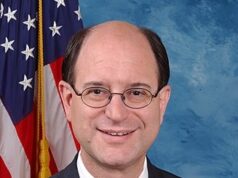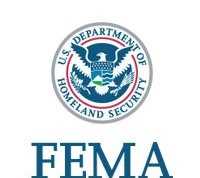Rose Center Works with Columbus Mayor Andrew J. Ginther on Preserving and Encouraging Mixed-Income Neighborhoods
Rose Center Works with Columbus Mayor Andrew J. Ginther on Preserving and Encouraging Mixed-Income Neighborhoods
COLUMBUS, OHIO (April 5, 2018) – (RealEstateRama) — The Rose Center for Public Leadership, jointly operated by the National League of Cities (NLC) and the Urban Land Institute (ULI), is working with Mayor Andrew J. Ginther to advise the City on a strategy to ensure its neighborhoods include housing for people with a broad spectrum of incomes as Columbus continues to attract new investment and residents.

“As Columbus grows, we know that one of our biggest opportunities will be continuing to create mixed-income neighborhoods,” said Mayor Ginther. “I am excited about engaging in this process with the Rose Center to evaluate the best solutions for this challenge because we know that strong vibrant neighborhoods are the key to our success going forward.”
Columbus is in the midst of a sustained period of urban revitalization, having seen significant growth in residents and jobs over the past decade supported by strong investment in its Downtown and core neighborhoods. But real household incomes fell on an inflation-adjusted basis during the Great Recession and have yet to recover to their 2008 levels, making housing affordability more challenging for many households. In addition, though some neighborhoods have recently seen significant revitalization, others still struggle with attracting new investment: the Columbus region was ranked the 5th-most segregated large metro area by income by the Martin Prosperity Institute, indicating there is more that can be done to ensure that its economic prosperity is shared by all.
The City has selected an area including parts of the Near East, Near South and South Sides that is representative of Columbus neighborhoods left out of the recent wave of growth and revitalization. Adjacent to Downtown, German Village and Merion Village, the selected area is where new investment appears to be on the horizon and serves as a place to plan for, and examine potential policy changes to implement a mixed-income neighborhood strategy.
Bound by East Main Street on the north, Alum Creek Drive on the east, Frebis Avenue/Whittier Streets on the south, and Parsons Avenue on the west, the study area has been losing residents, and nearly one-third of its housing stock is vacant. Median home values ($75,000) are only just more than half as much as citywide, as is household income ($25,175 compared to $47,000 citywide), making its residents susceptible to displacement when new investment comes.
“The City of Columbus, like many cities, has identified several neighborhoods with a high potential to accommodate growth,” said Jess Zimbabwe, director of the Rose Center. “Mayor Ginther has set forth a goal that this growth should include a mix of incomes, which is unlikely to happen without careful planning and policy. So we are excited to be bringing national expertise to this question.”
The Rose Center’s mission is to encourage and support excellence in land use decision-making by providing public officials with access to information, best practices, peer networks and other resources to foster creative, efficient, practical and sustainable land use policies. Each year, the center’s Daniel Rose Fellowship program invites the mayors of four large U.S. cities to select a team with land use decision-making authority to receive technical assistance on a local land use challenge. This year’s fellowship class is from the cities of Columbus, Ohio; Richmond, Virginia; Salt Lake City, Utah; and Tucson, Arizona.
“Local leadership is critical to achieving the housing needs that residents demand,” said Clarence E. Anthony, CEO and executive director of the National League of Cities (NLC). “We look forward to working with Mayor Ginther through the Rose Center to ensure Columbus can meet its housing affordability goals and create more economically vibrant neighborhoods.”
“The Rose Center has an impressive track record of helping cities make themselves more vibrant, livable and successful,” said ULI Americas Chief Executive Officer Ralph Boyd. “Development that is inclusive and contributes to social equity is an essential component of thriving, sustainable communities. We look forward to working with Columbus on solutions that will lift up underserved neighborhoods as well as the entire community.”
Mayor Ginther’s team includes his designated Rose Fellows: Mayor’s Deputy Chief of Staff for External Affairs Dawn Tyler Lee, Department of Development Director Steven Schoeny, and CASTO Communities President Brent Sobczak, who are assisted by project manager Mark Dravillas, assistant Planning Division administrator at the Department of Development. They will be joined by a panel of visiting experts assembled by the Rose Center.
The panel will be co-chaired by the Columbus Rose Fellowship team’s faculty advisers:
- Antoine Bryant, a Houston-based project manager and director of business development for the architectural firm Moody Nolan
- Lev Gershman, managing partner of the San Diego-based real estate investment firm Tideline Partners.
The panel will include Rose Fellows from other cities in this year’s class:
- Albert Elias, assistant city manager for Tucson
- Jane Ferrara, chief operating officer of the Richmond, Virginia Department of Economic & Community Development
- Nick Norris, Planning Division director at the Salt Lake City, Department of Community & Neighborhoods.
Rounding out the panel are subject matter experts:
- Christopher Coes, director of LOCUS: Responsible Real Estate Developers and Investors at Smart Growth America in Washington, D.C.
- Leila Finucane, president and CEO of Victory Housing, non-profit housing development arm of the Archdiocese of Washington based in Rockville, Maryland
- Elisha Harig-Blaine, manager for veterans and special needs housing at NLC
- Marty Jones, urban real estate developer and economic development strategist, and former president and CEO of MassDevelopment, Massachusetts’s economic development agency
- Christopher Stienon, a Brooklyn, N.Y-based architect, and principal for urban design and planning at AECOM
- Harriet Tregoning, community planning, development and urban resilience expert, immediate past Principal Deputy Assistant Secretary of the Office of Community Planning and Development at the U.S Department of Housing and Urban Development
- Bogue Wallin, principal and owner of Greenville, S.C.-based Blue Wall Real Estate
Mayor Ginther and his team will brief the panel, who will then tour the study area and meet with community representatives and advocates, business and civic leaders, and other stakeholders who will share their local knowledge and perspectives. Drawing upon their professional expertise and experience, the panelists will apply the information gathered during the visit and present recommendations for how the city, its partners and stakeholders can achieve their goals. Columbus’ expenses to participate in the program—including the panel’s visit—are underwritten by the Rose Center to ensure objectivity during the process.
The Daniel Rose Fellowship is the flagship program of the Rose Center, established in 2008 by the ULI Foundation Governor Daniel Rose. The purpose of the program is to provide city leaders with the insights, peer-to-peer learning, and analysis needed to successfully improve their cities. The fellowship’s program of work includes a study tour of another U.S. or foreign city, working retreats at NLC’s and ULI’s national conferences, and panel visits to each of the four fellowship cities. The cities of Anchorage, Alaska; Austin, Texas; Birmingham, Ala.; Boston; Charlotte, N.C.; Denver; Detroit; Grand Rapids, Mich.; Hartford, Conn.; Honolulu; Houston; Indianapolis; Kansas City, Mo.; Long Beach, Calif.; Louisville, Ky.; Memphis, Tenn.; Minneapolis; Nashville, Tenn.; Oakland, Calif.; Omaha, Neb.; Philadelphia; Phoenix; Pittsburgh; Portland, Ore.; Providence, R.I.; Rochester, N.Y.; Sacramento, Calif.; San José, Calif.; Seattle; Tacoma, Wash.; Tampa, Fla.; and Washington, D.C. have participated in the previous eight years of the program.
NOTE TO EDITORS AND REPORTERS: Representatives of the Rose Center will make a public presentation with preliminary observations and recommendations from 9-11 a.m. EDT on Friday, April 6 at the Michael B. Coleman Governmental Center, 111 N. Front St., in Room 204 (Hearing Room).
About the National League of Cities
The National League of Cities (NLC) is dedicated to helping city leaders build better communities. NLC is a resource and advocate for 19,000 cities, towns and villages, representing more than 218 million Americans.
About the Urban Land Institute
The Urban Land Institute is a nonprofit education and research institute supported by its members. Its mission is to provide leadership in the responsible use of land and in creating and sustaining thriving communities worldwide. Established in 1936, the institute has 40,000 members worldwide representing all aspects of land use and development disciplines. For more information, please visit uli.org or follow us on Twitter, Facebook, LinkedIn, and Instagram.
About City of Columbus
Columbus is the 14th largest city in the U.S. with a population of 860,000. Through its open-minded approach to life, business and ideas, Columbus has cultivated an environment of unique communities, companies, institutions and entertainment. Columbus is one of the fastest growing major metropolitan areas in the country and celebrated as one of the strongest metros in the country for job creation. The city supports a workforce that’s younger and more educated than the national average. In addition, its smart, open and inclusive nature is matched by diverse economy that offers a variety of career paths.
Media Contacts:
NLC: Tom Martin, ">; 202-626-3186
ULI: Trish Riggs, ">; 202-624-7086
City of Columbus: Robin Davis, ">, 614-645-2425
ULI Columbus: Alicia Gaston, ">; 614-596-0983
###














